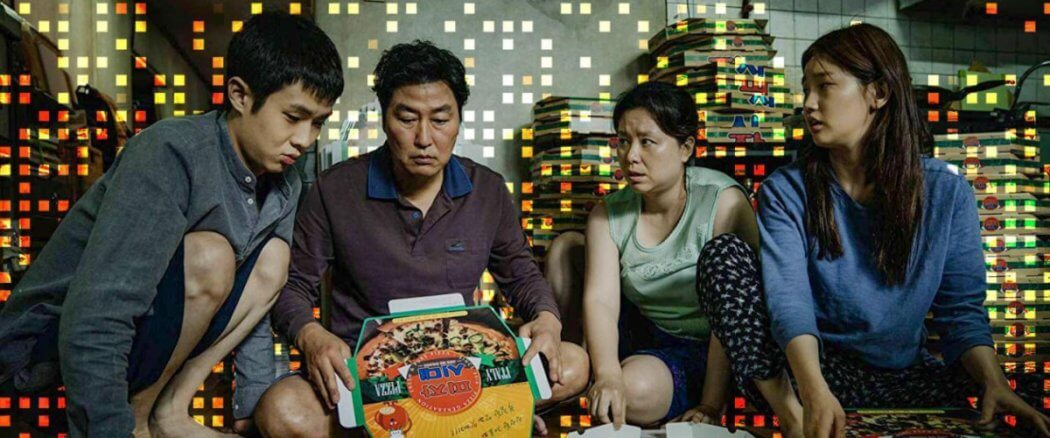As protests spring up worldwide and economic populism becomes the defining politic of the moment, it was only a matter of time before a film tapped into the zeitgeist. That film is Parasite. The movie, directed by Bong Joon-Ho, nabbed the Palm d’Or at this year’s Cannes Film Festival, opened in wide release across the country, and has already raked in close to $100 million domestically. Not bad for a foreign film with subtitles.
Parasite is about a family of four struggling to make ends meet in a cramped South Korean apartment. Through a chance encounter with an old friend, the oldest son of the family, Kim Ki-woo, lands a tutoring gig for a rich family of four across town who are on the opposite end of the ladder socially and economically. Eventually, Kim Ki-woo sees an opportunity worth exploiting. Through a series of events, Kim Ki-woo finds a way to employ every member of his poor family in the household of the rich family, all while acting as if they are complete strangers. From there, the movie takes a variety of twists and turns, encompasses multiple genres, and finally culminates in a shocking climax. Joon-Ho’s directing is crisp and precise. Every shot is honed for maximum impact, and every scene is filled with meaning and symbolism. Some stories are powerful enough to transcend language and culture. Parasite is one of them.
Join Jon and Tim as they discuss the movies they’re thankful for, a defense of cool whip, why Jon hates Star Wars, the lost theater amenity, strangers in loveseats, Tim’s favorite parasite, Planes, Trains, and Automobiles, the myth of class dynamism, Jeff Bezos vs. Amazon factory workers, how elites manipulate the masses, why money can buy happiness, and the ways wealth disguises suffering beneath the surface.





